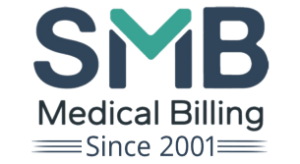Claim denials are a significant challenge in medical billing, occurring when insurance companies reject or refuse payment for submitted claims. These denials can arise from various factors, including:
- Errors or inaccuracies
- Insufficient or incomplete documentation
- Issues with patient eligibility and coverage
- Delays in claim submission
- Contractual discrepancies with payers
- Failure to meet medical necessity requirements
For healthcare providers, denials can lead to delays in payment, increased administrative expenses, and potential revenue loss. However, with outsourcing medical billing, proactive management and strategic appeals, these challenges can be effectively mitigated, improving overall reimbursement rates.
Effective Strategies for Managing Denials and Appeals
1. Root Causes
Start by analyzing denial trends and identifying the root causes of recurring issues. Regularly audit denied claims to uncover billing mistakes, documentation gaps, and other common reasons for denials. This analysis will help focus your improvement efforts.
2. Improve Documentation Practices
Ensure that all documentation thoroughly supports the medical necessity and appropriateness of the services provided. Educate providers and staff on documentation requirements and best practices to minimize denials due to insufficient information.
3. Optimize Claim Submission
Streamline the claim submission process, including utilizing electronic submissions whenever possible. Verify patient eligibility and insurance coverage upfront to reduce denials stemming from coverage issues or eligibility limitations.
4. Stay Current with Payer Policies
Keep up-to-date with payer policies, billing guidelines, and reimbursement rules. Regularly review updates from insurance companies and regulatory agencies to ensure your billing practices remain compliant and accurate.
5. Strengthen Appeal Strategies
Develop standardized appeal templates and protocols to make the appeals process more efficient. Customize appeals to address specific denial reasons and provide any necessary additional documentation or clarification to support the claim.
6. Monitor Appeals Progress
Implement systems to track the status of appeals, including submission timelines and follow-up requirements. Prioritize appeals based on their potential reimbursement impact, allocating resources strategically to maximize success rates.
7. Build Strong Relationships with Payers
Foster open communication with insurance payers to address denials and resolve disputes effectively. Advocate for fair reimbursement rates and work towards negotiating favorable contracts, ultimately reducing denials and improving revenue capture.
Effective Denial Management Through Outsourcing
Effectively managing denials and appeals is a vital part of medical billing. It requires a proactive approach and attention to detail. Outsourcing medical billing can be a smart solution for healthcare providers. Identifying root causes, improving documentation, and streamlining claim submissions are key. Developing strong appeal strategies helps maximize reimbursements and minimize revenue loss.
Outsourcing medical billing services and continuous education are essential for success. A commitment to process improvement is also critical. These strategies, including outsourcing, not only boost revenue but also support the financial health of healthcare providers, allowing them to focus on delivering excellent patient care.







